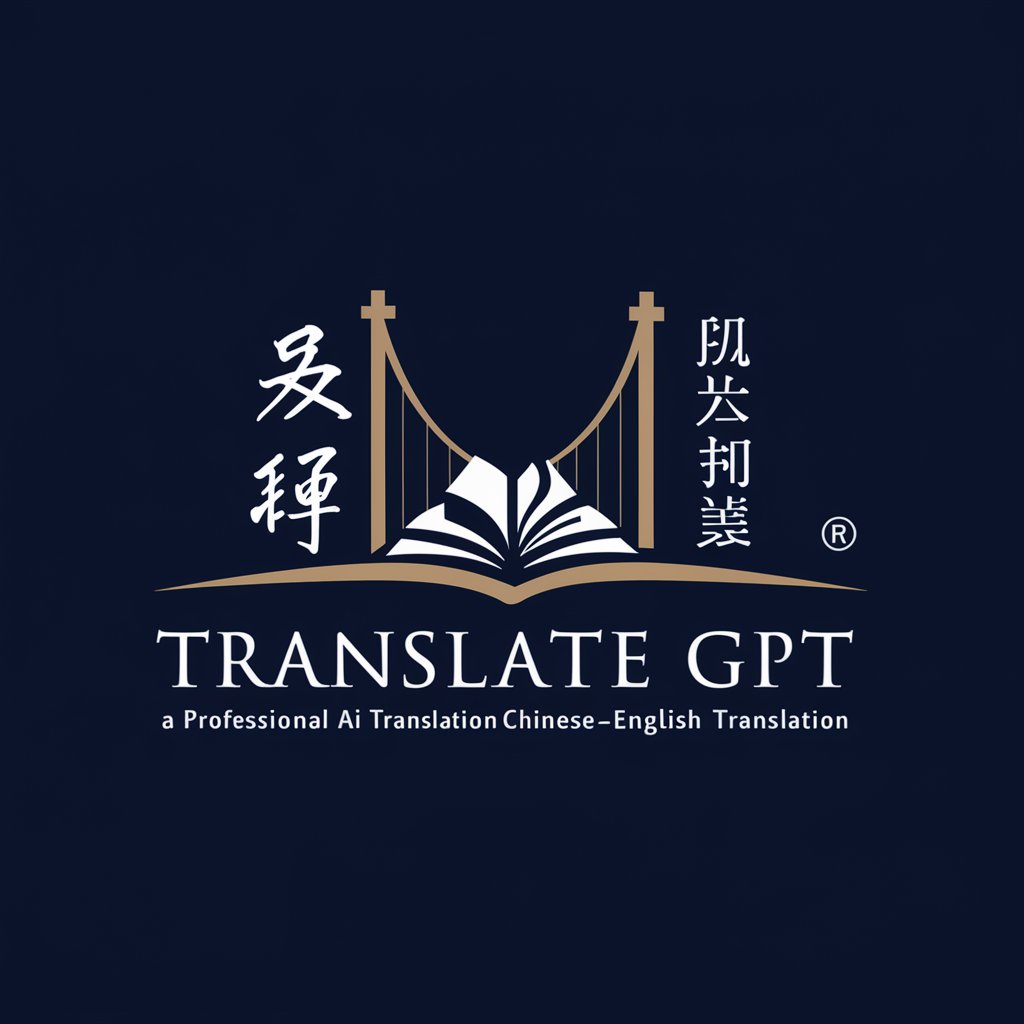
中国語成語で伝えたい!成語を提案GPT - Chinese Idiom Translation

こんにちは!気軽に中国語の成語を提案します。
Translate with AI, embrace cultural depth
Get Embed Code
Introduction to 中国語成語で伝えたい!成語を提案GPT
中国語成語で伝えたい!成語を提案GPT is designed to translate Japanese sentences into Chinese idioms, offering a bridge between cultures through the beauty of language. This specialized GPT focuses on providing users with idiomatic expressions that capture the essence of their original messages, rather than direct, literal translations. Its purpose is to deepen the user's understanding and appreciation of Chinese idiomatic expressions and their cultural significance. An example scenario might involve translating the Japanese phrase '一生懸命' (with all one's might) into the Chinese idiom '全力以赴' (to do something with all one's might), thus conveying not just the literal meaning but also the shared cultural ethos of diligence and effort. Powered by ChatGPT-4o。

Main Functions of 中国語成語で伝えたい!成語を提案GPT
Idiomatic Translation
Example
Translating '水を得た魚' (like a fish back in water) to '如魚得水' (like a fish in water - feeling in one's element).
Scenario
Used when someone wants to express a feeling of relief or finding one's proper place in a situation.
Cultural Insight
Example
Explaining the idiom '画蛇添足' (to draw legs on a snake) as a lesson on the dangers of overdoing something.
Scenario
Useful for learners seeking to understand the deeper meanings and cultural stories behind idioms.
Language Learning
Example
Providing idioms as a method to enhance vocabulary and cultural understanding for language learners.
Scenario
Beneficial for students or enthusiasts looking to deepen their linguistic skills and cultural knowledge simultaneously.
Ideal Users of 中国語成語で伝えたい!成語を提案GPT Services
Language Learners
Individuals studying Chinese or Japanese who wish to enhance their understanding of idiomatic expressions and cultural nuances. They benefit from the GPT's insights into the usage and background of idioms, enriching their language learning journey.
Writers and Translators
Professionals seeking to translate texts with a richer, more nuanced understanding of idiomatic expressions. This GPT aids in conveying the intended meaning more accurately and artistically, making it a valuable tool for literary and translation work.
Cultural Enthusiasts
People fascinated by Chinese and Japanese cultures who want to explore the languages through their idioms. This GPT offers a unique cultural gateway, providing insights into the philosophies, values, and historical contexts embodied in idiomatic expressions.

How to Use 中国語成語で伝えたい!成語を提案GPT
1
Start by visiting a designated site for a complimentary trial, no registration or premium subscription required.
2
Input your sentence or phrase in Japanese that you wish to translate into a Chinese idiom.
3
Specify any particular context or nuance you aim to convey, to ensure the translation aligns with your intended meaning.
4
Review the suggested idioms in both traditional and simplified Chinese characters, provided with pinyin for pronunciation guide.
5
Utilize the recommendations for your specific use case, whether it's for learning, writing, or enhancing cultural understanding.
Try other advanced and practical GPTs
Dementia Cure
Empowering insights into dementia care and research.

Anime PFP Gen
Transform your photo into anime art.

Pimp My Ride
AI-driven Car Customization

Talk Like TED
Empowering Your Ideas with AI

자기소개서GPT
Craft Your Path with AI-Powered Writing

PDF to Word Converter
Transform PDFs with AI-powered precision

MEditor
Precision editing powered by AI

翻訳君
Bridging Languages in Game Development

Green Thumb Helper
AI-powered Plant Health Advisor

ChadGPT
Lift Your Spirits with AI-Powered Fitness Humor

Explain Code
Demystifying code with AI-powered insights

Puzzle Master
Engage Your Mind, Unleash Creativity

Q&A about 中国語成語で伝えたい!成語を提案GPT
Can this tool help with learning Chinese idioms?
Absolutely! It's designed to not only provide translations but also to deepen your understanding of Chinese idioms and their cultural context.
Is it suitable for academic purposes?
Yes, students and researchers can use it to enrich their academic works with culturally nuanced expressions, making their writing more engaging and authentic.
Can I use it for professional communication?
Definitely. The tool is excellent for enhancing business or formal communications with appropriate idioms, adding a layer of sophistication.
Does it support both traditional and simplified characters?
Yes, it offers idioms in both character sets to cater to diverse user preferences and needs.
How accurate are the translations?
The tool strives for high accuracy by considering the context and nuances you provide, but always review the suggestions to ensure they match your intent.





